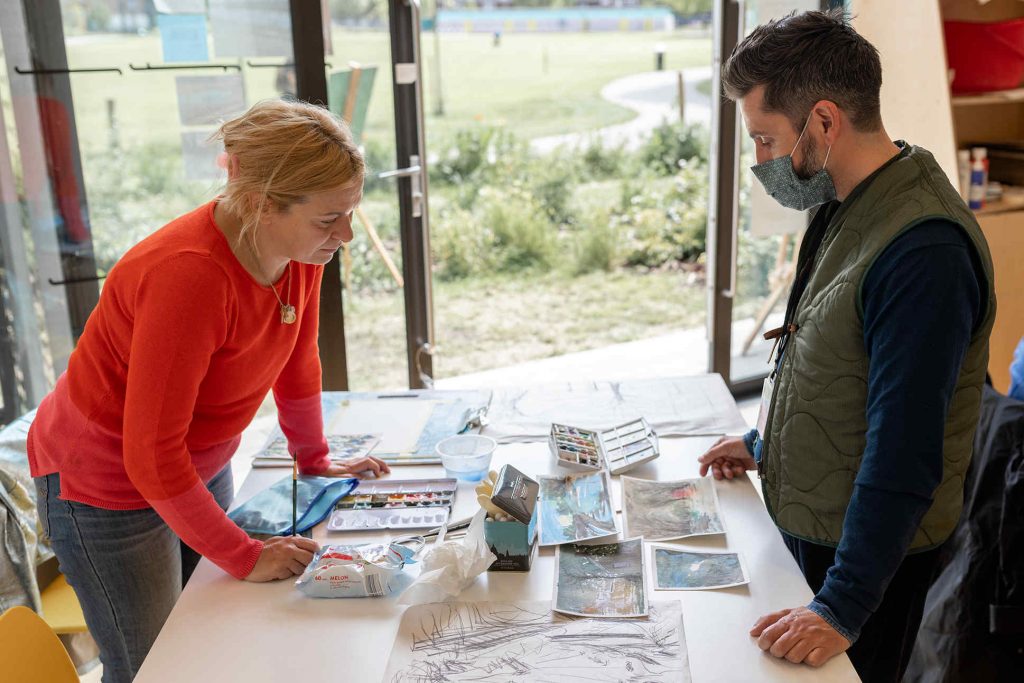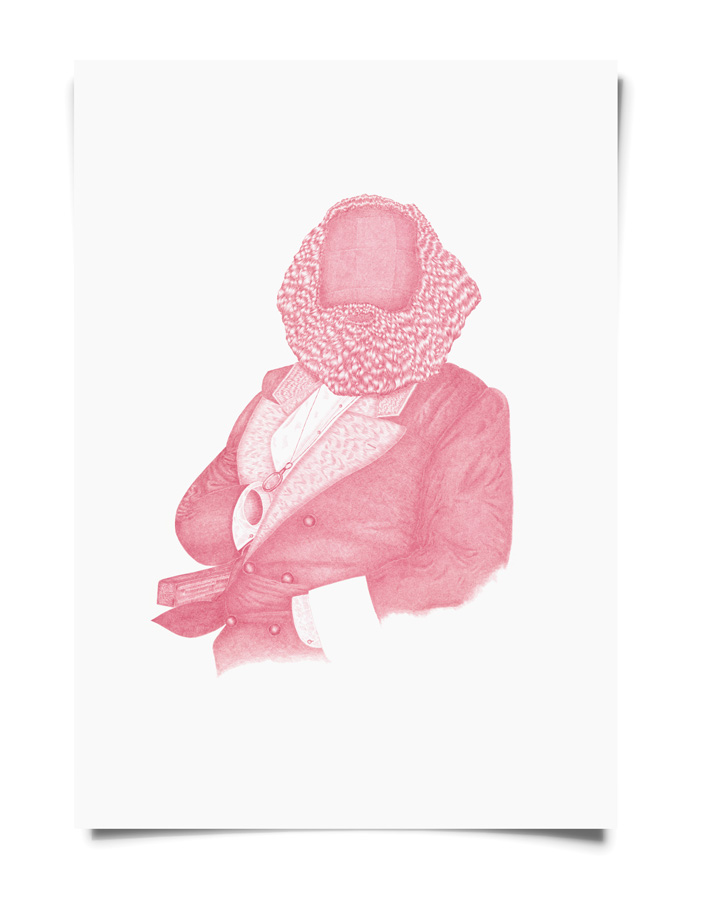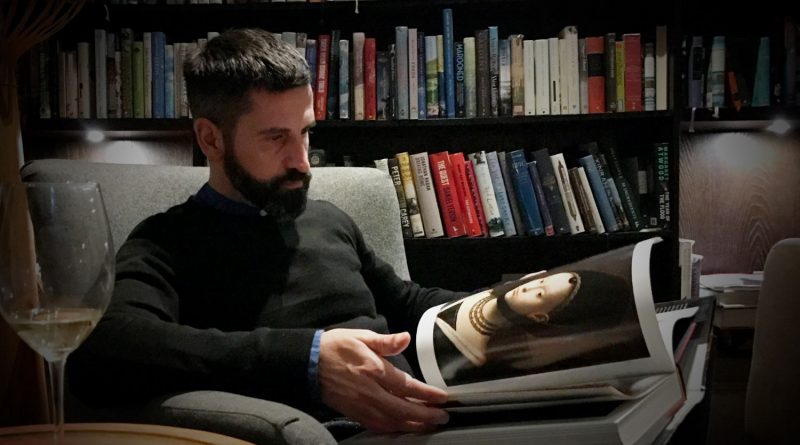Poplar Union’s Paolo Fiorentini on the blank canvas of the East End
Paolo Fiorentini tells of assimilating into life in London, dealing with grief through art, and teaching others how to use art as an outlet.
“There’s an energy in East London which is really unique,” Paolo Fiorentini says. “It keeps changing, and sometimes it can be a bit dramatic or a bit upsetting, but it does always bring something else.”
Most people know Fiorentini as the creative director of Poplar Union – you may have even seen his postcards of Poplar’s most iconic landmarks.
Fiorentini moved to London from Italy in the 90s, attracted by the opportunities the city offers for young artists, and has made East London his home.
Before taking up his post at Poplar Union, Fiorentini worked for Muxima art cafe on Roman Road, and held group exhibitions at his Bow Arts studio.

From Italy to the East End
Fiorentini grew up in Bologna, living above the garage his family owned and spending his spare time in his mother’s upholstery studio.
He moved to London twenty years ago, attracted by the opportunities the city offers for young artists.
Fiorentini’s mother died of cancer shortly before his move, and his father died of a heart attack a few months afterwards.
“The house was sold very quickly with all the contents inside, and I was already in London so I didn’t have time to get my stuff,” he says.
A few years later Fiorentini started drawing objects he remembered being in the house, such as a particular book, chair or rug.
“I now have over 1,000 of them,” he says. “It was a way to have my pain absorbed by drawing, and to find some relief from that loss,” he says.
Apart from his sister Fiorentini has no family left in Italy, and when he went back eight years ago, the house he grew up in had been demolished.
“I do feel that the UK is my country, the culture suits me,” Fiorentini says. “But Brexit was painful for me and my partner. Although I have citizenship, many people I know have left or are struggling to get to the point where they feel safe.”
Fiorentini has a gentle voice, and speaks thoughtfully about his life in London.
“I moved on my own and it took a long time to build connections. I didn’t have any Italian friends because I wanted to force myself to be integrated in a way where I wasn’t constantly going back to my culture to measure myself with this new one, I wanted to just be part of it.”
Art helped Fiorentini express the difficulty of navigating his identity in a foreign country, apparent in his drawings of faceless historical figures rendered in delicate red biro.
“I wanted to challenge the assumption that you can understand someone just by looking at them,” Fiorentini says. “I felt so many times that I was judged simply because my name is inescapably Italian.”
Fiorentini wanted to provide enough detail so that people’s eyes would immediately piece together who the historical figure was; for example, in his drawing of socialist revolutionary Karl Marx, Marx’s characteristic beard is so textured you could reach out and touch it.
But his face and hands are blank, making Marx nothing more than a decorative suit of armour, unanimated and unknowable.
“That shell is enough for people to make a judgement about that person and what they represent,” Fiorentini says. “But in reality, historical knowledge is flaky. You feel like you know everything about this person, but actually that understanding has changed so many times.”

Unlocking creativity at Poplar Union
Three years ago, Fiorentini started teaching a lunchtime art class at Poplar Union which attracts people who are retired or vulnerable, with spare time during the day.
“Language can be a barrier, and age can be a barrier because some people have very little mobility,” Fiorentini says.
Fiorentini runs an open class where people can choose what they want to do, and he helps to develop their ideas.
“I think empowering people to make their own choices is the best gift you can give them,” he says. “You want to let them try what’s at the back of their mind, and this creativity will lead them someplace.”
Fiorentini emphasises in his classes that art is more about the process than the final result, an attitude he carries into his own practice.
“You hear the same story from the majority of my class, I took art A level and I was told I wasn’t very good,” Fiorentini says. “You have to explain that this is not about reproducing reality, it’s just about giving yourself a chance to find something which is a part of you.”
Fiorentini says that some people come in just to have a chat.
“I think there’s this quality about drawing on a piece of paper, you start talking because you’re relaxing, and then you make space for things which would otherwise be a little bit painful or difficult,” Fiorentini says.
He even nurtured a student into developing their own professional artistic practice by encouraging her to get a studio and organising an exhibition of her work at Poplar Union.
“It was just amazing, I felt that I’d managed to achieve something which is not about delivering a class or giving people skills, but just building up their sense of confidence.”
Fiorentini knows the wrench of abrupt loss, and the isolation of feeling like an outsider. Using everyday materials like scrap paper, biro pens and thread, he unravels tangled feelings of grief and alienation, and teaches others to do the same.
If you enjoyed this, you may like our feature on Poplar’s Chihuahua mural: a tale of gentrification.

